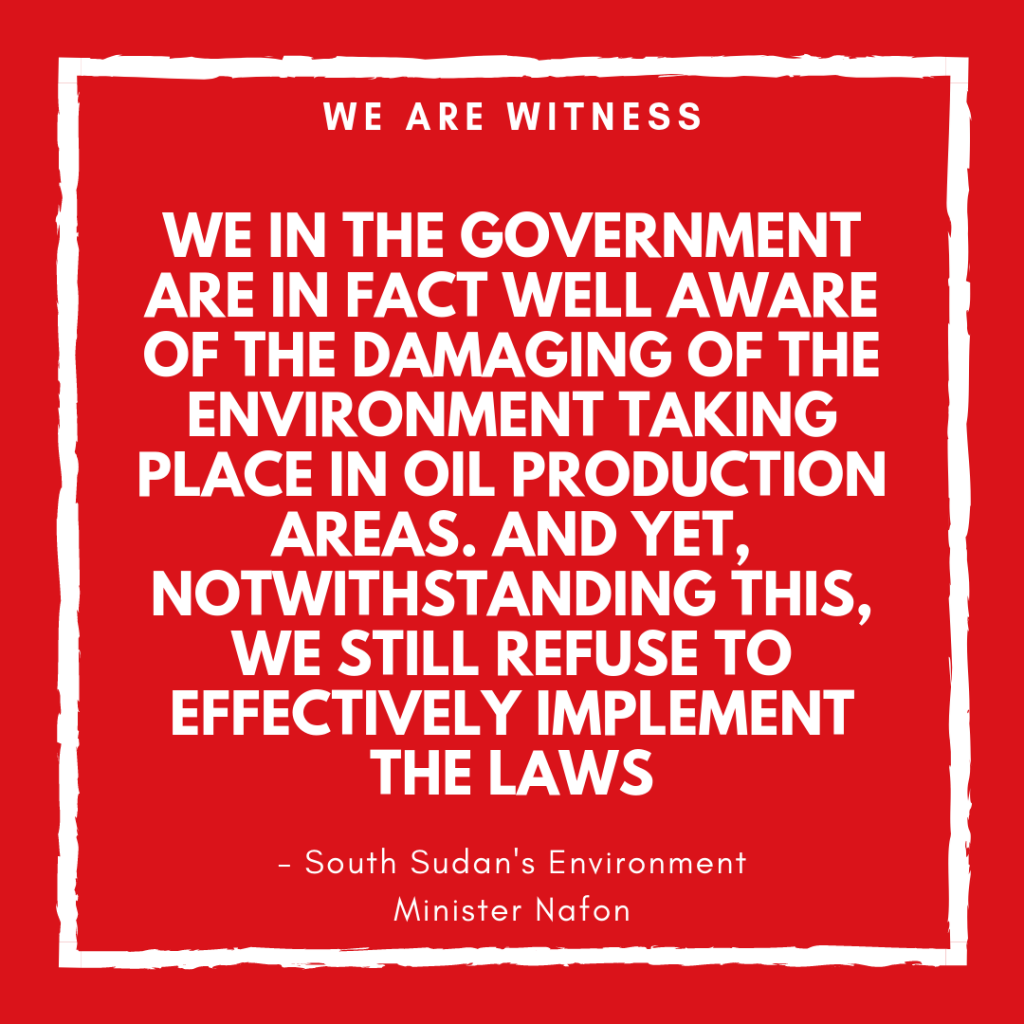On World Environment day 2019: Searing criticisms of government and oil companies
by Francis Michael Gwang, We Are Witness
June 5, 2019
Oil pollution is widespread in South Sudan. The country’s government is well aware of it, and of the extensive damaging of health resulting from it. Despite this, the government has failed to take action to put a stop to it.’
That is the gist of the remarks made by Josephine Nafon, South Sudan’s minister of the environment and tourism. Her criticisms were voiced at ceremony held in Juba to mark World Environment Day 2019.
“Oil contaminants have caused a suffering of the health of a large number of the people living near oil wells,” reports the minister. She views the ultimate cause of this suffering to be the reluctance on the part of the government of South Sudan to take effective action.
This reluctance manifests itself in the government’s unwillingness to implement and enforce the commendable environmental and human protection laws that it had enacted. It also reveals itself in the government’s failure to conduct studies capable of revealing the extent of this damaging.

“We in the government are in fact well aware of the damaging of the environment taking place in oil production areas. And yet, notwithstanding this, we still refuse to effectively implement the laws,” states the minister.
The pollution stems from the oil companies operating in South Sudan. As the minister states, their only goal is to maximize profits. They do not care about the environment or about the health of the people living in and around the production areas.
In a key point, the minister pointed out that the prime victims of this callous pursuit of earnings are women and children. She cited the pollution-caused emergence of unknown diseases, the birth of deformed offspring and the prevalence of stillbirths.
Minister Nafon appealed to her government and to the companies to allocate the funds necessary to clean up the environment and to help the many victims.
She also revealed that her ministry had formulated a plan to stiffen the laws governing the production and transportation of oil – and to thus finally achieve an effective protection of the environment.

